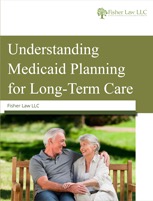Norwood Powers of Attorney
Comprehensive Norwood Estate Planning to Keep You Safe During any Period of Incapacity
Estate planning is about more than just wills and trusts and deciding how your property will be distributed to your heirs and beneficiaries after your death. What happens if you get hit with an illness or injury that prevents you from taking care of yourself? Who will manage your financial legal affairs if you can’t do it? These questions become increasingly more relevant as we get older and become less able to take care of ourselves, whether due to physical frailty or age-related diseases such as Alzheimer’s or dementia.
Proper planning can make sure your estate is looked after if you become incapacitated temporarily, long-term or permanently. By planning now, you decide who will look after your affairs and make sure your property is well-managed and taken care of until you get back on your feet or for the benefit of your beneficiaries.
Fisher Law LLC can advise you on your options and make sure you are taken care of by drafting and executing powers of attorney appropriate to your needs. You might never need to use these powers of attorney, but having them in place gives you and your family members peace of mind that things will be managed smoothly if something does happen, avoiding the uncertainty, confusion, arguments and even legal battles that can follow if you didn’t take the time to plan in advance.
What Is a Power of Attorney?
A power of attorney is a legal document that authorizes another person to act for you and make legally binding decisions on your behalf. The person who acts under a power of attorney is known as your “attorney in fact,” which is why the power is called a power of attorney, but you might just as well think of the person as your agent. For instance, a person with power of attorney could represent you in a business deal and handle the negotiations for you, whether for business purposes or personal reasons, such as buying a car or a piece of investment property.
A person with power of attorney is not necessarily an attorney at law (a lawyer), although they could be. They could just be someone with more business savvy, negotiation skills, or specialized knowledge in a particular area, and you want them to represent you in a transaction. You might also use an agent to handle a deal when you want to place a level of anonymity between yourself and others or the general public, such as if you are buying an expensive piece of art at an auction but don’t want to advertise that fact to the world.
Another reason a person might give their power of attorney to someone is if they are going out of the country for an extended period and they want someone back home in Norwood to manage their local affairs for them while they are gone.
What Does a Power of Attorney Have to Do With Estate Planning?
An important part of estate planning involves planning for a period of incapacity that could occur near the end of life or at any time. When you think about it, there may be countless things you do every day to manage your affairs that simply wouldn’t get done if you weren’t there to do them. Your estate could fall into ruin if no one was around to actively manage it. By assigning a power of attorney, you give another person the power to act on your behalf in various areas of your life while you are unable. For instance, a person with power of attorney could take care of all of the following for you:
- Draw checks on your bank account to keep up your mortgage, utilities, car payments and pay other bills
- Deposit funds into your bank account
- Pay doctor and hospital bills
- Buy or sell property
- Arrange for your transfer to a long-term care facility
- Prepare your tax returns or hire a CPA to do your taxes
- Make sure your lawn gets cut and the house is maintained in your absence
- Answer correspondence
- Apply for Medicaid or Supplemental Security Income (SSI) from Social Security for you
Obviously, given these powers, you would only authorize a power of attorney for someone you trust. Usually, this is a close family member. The alternative to a power of attorney is that others might go to court to force a guardianship or conservatorship over you or your estate. If this happens while you are incapacitated, you won’t have any say over who the court appoints as guardian or conservator or what powers they are given. At Fisher Law, we’ll draft the power of attorney to be as broad or as restrictive as you wish, so that you only give another the powers you are comfortable granting.
A typical power of attorney lasts until you die or revoke the document, and it also terminates if you become incapacitated. Of course, if drafting a power of attorney for estate planning, you want it to continue in force if you are incapacitated, which is why you want to be sure and draft what is known as a durable power of attorney. A durable power of attorney can also be written so that it only becomes effective if you become incapacitated and not before, and ends when you regain capacity.
Get Powers of Attorney and More at Our Norwood Estate Planning Law Office
A durable power of attorney is an essential piece of your estate plan. To discuss powers of attorney as part of a comprehensive estate planning process, contact Fisher Law LLC to review your needs with a skilled and professional Norwood estate planning attorney.





